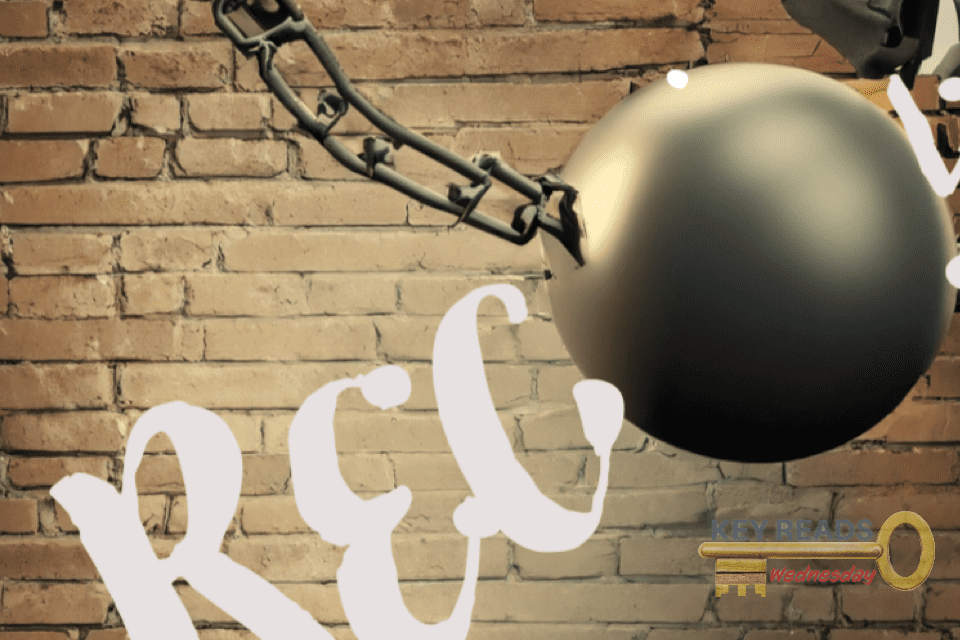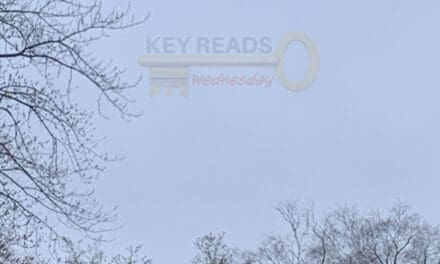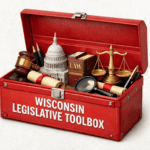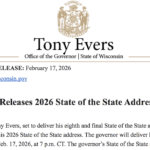Maybe consult with election officials on proper district lines BEFORE you gather recall signatures?
With big money and loaded rhetoric, the confederation of groups attempting to recall Assembly Speaker Robin Vos turned in more than 10,000 signatures on Monday. On Tuesday, a cursory review took a wrecking ball to their plan when the Elections Commission found the number of valid signatures to be insufficient to trigger a recall election. Part of the problem was that they collected signatures from parts of several different districts, and many from locations an hour or more away from Vos’ district.

With many of the circulators living in states like Arkansas, Florida, Virginia and Mississippi, perhaps this is not surprising.
With many recallers holding firm to a myriad of conspiracy theories, it’s also not surprising that they’re crying foul over the review of their efforts.
As we’ve said, there’s a lot more left to this story. But for now the attempt to oust Speaker Vos appears to be crumbling.
Wisconsin elections review shows recall targeting GOP leader falls short of signatures needed | Associated Press
Recall organizers fell more than 900 signatures short of the number needed to force a recall election in the district that Assembly Speaker Robin Vos had represented for years. However, it’s not clear if those boundary lines should be used for the recall.
The liberal-controlled Wisconsin Supreme Court in December tossed the maps that were last used in 2022 and barred them from being used in future elections. However, the new maps signed into law last month by Democratic Gov. Tony Evers don’t take effect until November.
That leaves it unclear about what district boundary lines are in effect for elections before November..
The number of signatures needed to trigger a recall election of a lawmaker is based on votes cast for governor and varies by district.
Based on the district Vos was elected to serve in 2022, circulators needed 6,850 valid signatures. Petition organizer Matthew Snorek, who is from the southeastern Wisconsin town of Burlington and owns an extermination business, said Monday that district was targeted for signature collection.
Elections commission staff said Tuesday that 9,053 potentially valid signatures were collected. And of those, only 5,905 were from the district Vos was elected to serve in, which is 945 signatures short of what was needed.
So, whether the Supreme Court decides signatures should have been obtained from the old or new district, the group failed to obtain enough to trigger a recall. The group may appeal any decision by the Elections Commission, but they may also have their hands full with other problems…
Racine Co. residents accuse Recall Vos Campaign of forging their signatures | Dan O’Donnell
Three Racine County residents have accused the Recall Vos campaign of forging their signatures on petitions to remove the Wisconsin Assembly Speaker from office. All three have sworn affidavits with the Racine County District Attorney’s Office, which has launched a criminal investigation into Recall Vos for suspected identity theft and election fraud…
The Racine County District Attorney’s Office confirmed that it has launched an investigation into similar claims of forged signatures and is referring the complaints to relevant law enforcement agencies for investigation and has signaled that it would file criminal charges if the evidence supports them.
Is it irony or hypocrisy that many in the recall group accused Vos of not doing enough to stop election fraud in Wisconsin? We’ll continue to follow this story, as it most certainly will have more twists and turns in the coming days.
Barring an unexpected development, the state legislature is done meeting for the year. The State Senate had its final floor period yesterday. The Assembly adjourned earlier this month.
State Senate wraps up two year session | Spectrum News
Since 2019, Senate Republicans have rejected 21 of Gov. Tony Evers’ picks for various posts. Over the almost four decades before that, the Senate had only rejected a total of four nominations…
Ultimately, the Senate fired a total of eight appointees Tuesday, including two members of the University of Wisconsin Board of Regents, over their stances on diversity, equity and inclusion (DEI) efforts.
Among the rejections were also four nominations for the Wisconsin Judicial Commission: Yulonda Anderson, Jane Foley, Janet Jenkins and Judy Ziewacz…
Lawmakers also voted on a few constitutional amendments, including one that will be on the ballot in August, asking voters to decide whether governors should be prohibited from spending federal money without legislative approval.
Computing power is like fire, it can be a tool for good or evil. It depends on how it used and the intentions of the user. Well lawmakers have decided to curb some of the possible negative impact of Artificial Intelligence. Of course the would-be victims they are hoping to protect include…themselves.
Bill to regulate AI in election ads heads to governor’s desk | Beloit Daily News
Legislation which aims to provide safeguards against the misuse of artificial intelligence in Wisconsin elections was approved in the Wisconsin Senate on Tuesday.
The bipartisan legislation was introduced by Rep. Clinton Anderson, D-Beloit, and Sen. Mark Spreitzer, D-Beloit. 2023 Assembly Bill 664 requires that any audio or video communication paid for by candidates or other political entities includes a clear disclosure if the communication contains synthetic media that is substantially produced by generative artificial intelligence.
The legislation also was supported by Sen. Romaine Quinn, R-Cameron, and Rep. Adam Neylon, R-Pewaukee. AB 664 was passed by the State Assembly on Feb. 15, and will now be sent to Governor Tony Evers for his signature.
This one hurts.
It was bad enough the economics of the game saw the Packers part ways with a fan favorite. But now he ends up in purple! Let’s hope he as a great season, save for two games, but that his new team continues to be mired in mediocrity.
Former Packer Aaron Jones signs $7 million deal with Minnesota Vikings | WLUK
That’s it for today. We’ll be back with more Key Reads tomorrow. Until then, if you’ve ever wanted to learn how to hunt bear, we have you covered!
Learn to hunt bear | Dairyland Sentinel
The Wisconsin Department of Natural Resources (DNR) and conservation partners encourage novice and experienced bear hunters to join the Learn to Hunt Bear program as participants and instructors.
The Learn to Hunt Bear program provides a unique learning opportunity and outdoor experience for novice hunters who otherwise need a pathway to hunting bears. The program includes multiple classroom and field sessions, culminating with a bear-hunting excursion. Participants will learn about bear biology, population management, habits and habitat, hunting techniques, regulations and safety.
Anyone who has not previously participated in the Learn to Hunt Bear program or received a bear harvest authorization is encouraged to apply. Participants must be at least 10 years old and lack a pathway to experience bear hunting, such as bear hunting with family or friends.


















